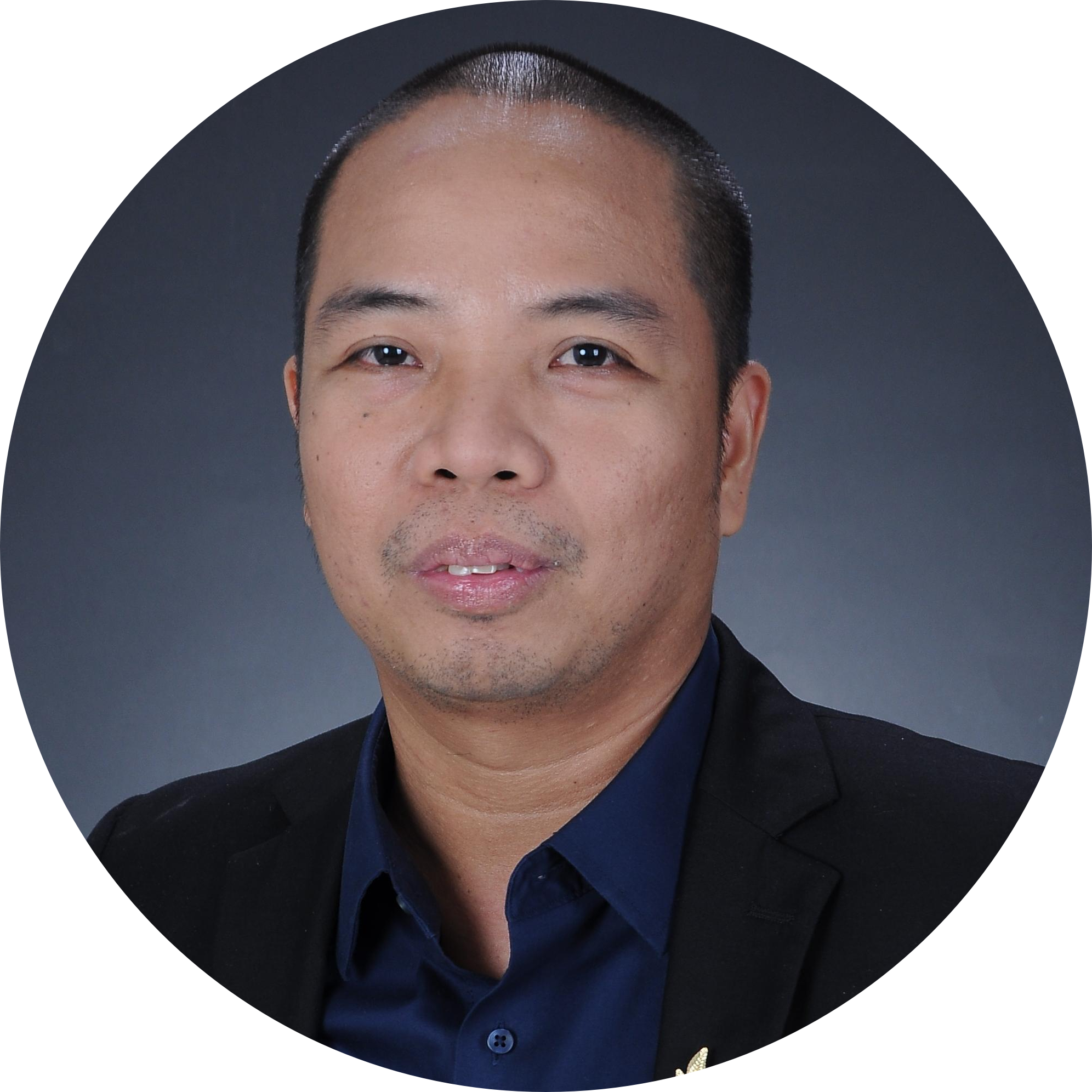
Prof. Antoine Bossard,
Kanagawa University, Japan
Biography: Antoine Bossard is a Professor of the Graduate School of Science, Kanagawa University in Japan. He received the BS and MS degrees from Université de Caen Basse-Normandie, France in 2005 and 2007, respectively, and the Ph.D. degree from Tokyo University of Agriculture and Technology, Japan in 2011. Amongst others, he is in charge of the computer architecture and functional programming lectures for undergraduate students, and of a graph theory lecture for master students. He also is responsible for the functional and logic programming lecture at Tokyo University of Agriculture and Technology.
Regarding research activities, Antoine mostly focuses on the following two subjects: interconnection networks (network topologies, routing problems, fault tolerance) and information representation and processing of Chinese characters (e.g. fingerprinting). He is the author of multiple papers in these fields, papers published in international journals and conference proceedings. He has also written several books, for instance for his students of computer architecture and functional programming, and on Chinese characters, with notably a commented translation of the first part of the Dictionarium anamitico-latinum of Jean-Louis Taberd.

Prof. Hamid Mcheick,
University of Quebec at Chiocoutimi, Canada
Speech Title: Design Contextaware Healthcare Framework
Abstract: Nowaday, ubiquitous/IoT healthcare model is reshaping the
research in the medical domain due to its potential to concurrently overcome
the challenges encountered in the traditional healthcare systems. Prediction
of exacerbation of Chronic Obstructive Pulmonary Disease (COPD) is considered
incurable disease and the fourth difficult problem in the medical field. Many
issues face researchers in the medical domain, such as modelling and
representation of patient’ context (risk factors), uncertainty, accuracy of
decision, and preventing exacerbations. These issues have been handled in may
research projects. However, healthcare systems for COPD need to identify and
represent the complexity of medical facors and to design prediction model to
increase the accuracy. Traditional treatment plan and non-fully automatic
applications are still used and have many issues, such as performance
(accuracy) and Interpretability. The goal of this research is to design
reliable mechanisms to improve life quality of COPD patients and to protect
them against risk factors, as well as help the physiciens by providing
recommendations. In this talk, I will present contextaware healthcare
architectural framework, including context modelling, context representation
and rule-based recommendations.
Biography: Professor Hamid Mcheick is a
full professor in Computer Science department at the University of Québec at
Chicoutimi, Canada. He has more than 25 years of experience in both academic
and industrial area. He has done his PhD in Software Engineering and
Distributed System in the University of Montreal, Canada. He is working on :
designing and adaptation of smart software applications; designing healthcare
frameworks for medical domain; Design smart Cloud-IoT model; and designing
smart Internet of Things and edge frameworks for smart city. He has supervised
many post-doctorate, PhD, master and bachelor students. He has nine book
chapters, more than 60 research papers in international journals and more than
150 research papers in international/national conference and workshop
proceedings in his credit. Dr. Mcheick has given many keynote speeches and
tutorials in his research area. Dr. Mcheick has gotten many grants from
governments, industrials and academics. He is a chief in editor, chair,
co-chair, reviewer, member in many organizations (such as IEEE, ACM, Springer,
Elsevier, Inderscience) around the world.

Senior Lecturer Sokratis Karkalas,
University of Derby, UK
Speech Title: From Black Boxes to Pedagogical Insight:
Designing Authorable Learning Analytics for Diverse Digital Learning Tools
Abstract: Learning analytics dashboards are often treated as black boxes,
reflecting the dominance of linear, behaviourist, and cognitivist
instructional models in formal education. These approaches privilege simple,
binary data derived from structured activities, such as SCORM-based tasks,
which lend themselves to institutional reporting but provide little insight
into complex learning processes. In contrast, emerging ecosystems of
constructionist tools generate heterogeneous data across multiple modalities,
offering opportunities for richer insights but also presenting significant
challenges for interpretation. Generic dashboards that treat all data
uniformly are no longer sufficient in this context.
This research
introduces a framework for authorable, skill-based learning analytics designed
to operate across diverse tools and data modalities and bridge the gap between
complex, multi-modal learning data and meaningful pedagogical insight. The
study explored how tool affordances relate to the development of 21st-century
skills, generating a nuanced understanding of which learner interactions are
most relevant. Building on these insights, the research developed methods for
translating raw tool data into interpretable metrics, carefully balancing the
need for educator-friendly authoring with the inherent complexity of diverse
data streams. A prototype system was co-designed with learning design experts,
drawing on example-tracing approaches from intelligent tutoring systems:
teachers interact with learning activities in “learner mode,” allowing the
system to capture their actions and directly map them to pedagogical
constructs. This approach empowers non-technical users to define meaningful
metrics, determine the appropriate granularity of analysis, and align
analytics outputs with their instructional objectives, providing a flexible,
actionable bridge between learner activity and skill-oriented assessment.
These findings underscore the importance of moving beyond one-size-fits-all
dashboards toward adaptable, educator-driven analytics. By enabling teachers
to author meaningful metrics and interpret multi-modal data, this approach not
only supports more informed instructional decisions but also lays the
groundwork for future innovations in learning analytics that can respond to
the evolving demands of 21st-century education.
Biography: Dr. Sokratis Karkalas has been working at the
intersection of industry and education since 1991. He holds degrees in
economics, business administration, computer science, and pedagogy. Currently,
he is a Senior Lecturer in Software Engineering at the University of Derby,
where he heads the Education and AI Research Group. He also serves as a
Visiting Research Fellow at the UCL Knowledge Lab, University of London.
Dr. Karkalas earned his PhD in Computer Science from the University of London,
where he was awarded the Best PhD Project Award by INSTICC (Institute for
Systems and Technologies of Information, Control and Communication) in 2015.
He is an accredited TOGAF Enterprise Architect, a member of the Association of
Enterprise Architects (UK), an Associate Fellow of the Higher Education
Academy (UK), and a member of the British Computer Society – The Chartered
Institute for IT.
Prior to his academic career, Dr. Karkalas held the
position of Group Chief Information Officer (CIO) for a multinational
industrial group and worked as a senior / lead software engineer and project
architect at major consulting firms. In these roles, he led the design and
development of prototypes for R&D departments. He has contributed to numerous
research projects - academic and industrial - funded by the EU, local
governments (ESRC/EPSRC), and the private sector.
With over 25 years of
academic experience, including 17 years at leading UK universities, Dr.
Karkalas' research focuses on computer-supported education, particularly the
application of artificial intelligence to improve learning. He applies machine
learning techniques to provide personalized support to both students and
educators. Dr. Karkalas also has extensive experience designing and
implementing information systems for educational and industrial applications,
as well as working on technologies that enable the semantic enhancement,
integration, and interoperability of diverse components within learning
platforms.

Assoc. Prof. Herminiño Lagunzad,
National University, Philippines
Speech Title: 7th-Bit RGB Steganographic Manipulation for
Enhanced Data Concealment and Secure Employee Record Protection
Abstract: The increasing demand for secure data exchange across digital
platforms presents persistent challenges, particularly the risk of
unauthorized access to sensitive information. To address these concerns, this
study explores an enhanced image steganography technique within the RGB color
space using 7th-bit manipulation to improve data concealment. Steganography,
the practice of embedding hidden information within digital media, offers a
promising avenue for secure communication and information protection. This
research introduces a method for concealing encrypted employee records within
the least significant bits of RGB channels in common image formats such as
PNG, JPG, and JPEG. The technique ensures negligible visual distortion while
maintaining strong security properties. Experimental evaluations demonstrate
high embedding capacity, strong imperceptibility, and resilience against
steganalysis attacks, confirming the reliability of the proposed approach. The
findings contribute to the development of more robust secure communication
mechanisms and offer practical implications for safeguarding sensitive
employee information in modern digital environments.
Biography: Herminiño C. Lagunzad is an academic and
researcher serving as Program Chair of the Information Technology program at
National University – Fairview, Philippines, and a full-time IT faculty
member. He is pursuing a Doctorate in Information Technology at Pamantasan ng
Lungsod ng Maynila, deepening his expertise in advanced computing, data
science, and emerging technologies. At NU, he teaches programming, networking,
data security, and research, and provides academic leadership to strengthen
curriculum quality and scholarly output, backed by 12 years of teaching
experience.
Lagunzad is an active scholar with multiple IEEE-indexed
publications, working across IoT, AI, data security, healthcare technologies,
and predictive analytics. His projects include modeling student dropout and
mental health awareness with Naive Bayes, developing an IoT-based smart
shopping system, applying ID3 for early diabetes prediction, creating an AR
tool for learning car parts, and designing Arduino-powered wearable gloves to
monitor hand rehabilitation. His work has been presented in Australia, China,
Japan, and Thailand, earning the PRAI 2023 Excellent Paper Presentation award.
He contributes to the international academic community as a technical
committee member for several conferences, an Invited Speaker at IPAI 2025, a
Session Chair at PRAI 2025, and he also chaired sessions at ICCAE 2024 and
ICINT 2025, advancing discourse in computer science and emerging technologies.
His affiliations include IEEE, the Philippine Society of Information
Technology Educators (PSITE), the Council of Deans and Program Heads for
Information Technology Education, and the Integrated Society of Information
Technology Enthusiasts. He is also a Microsoft Innovative Educator Expert
(2024–2026), underscoring his commitment to technology-enhanced teaching and
learning.

Asst. Prof. Mohd Hafizuddin Bin Kamilin,
National Institute of Technology, Ube College, Japan
Speech Title: Digital Twin Implementation on IEEE 14-Bus System with Concealed Bus Topology and Pricing Mechanism
Abstract: Digital twin implementation on smart grids helps researchers to preemptively detect the issues and test new optimization methods without risking the operations. However, necessary information, such as bus topology and pricing rules to implement digital twins, is often not shared due to security concerns. Furthermore, previous research on implementing digital twins with data restrictions does not validate the model against accessible smart grid data. To resolve the issues that were not addressed in the previous research, this paper implemented a graph attention network to construct edges based on data-driven correlations, with a temporal convolution block to estimate the electricity price. By validating the result on the IEEE 14-bus system with noise added to the day-ahead forecast, 98.41% of the variance in electricity pricing is accounted for by the proposed digital twin, which exceeds the previous digital twin that only accounts for 71.26%.
Biography: Mohd Hafizuddin Bin Kamilin is an assistant professor in the Department of Intelligent System Engineering in the National College of Technology, Ube College, Japan. He received his Doctor of Engineering from Yamaguchi University in 2025. His research theme is mostly about smart grids, smart cities, the Internet of Things, and machine learning. Currently, he's focusing on improving machine learning resiliency in a smart grid system against cyberattacks. He has written peer-reviewed works for journals like Applied Sciences and Smart Cities, and he has presented at major conferences, including IEEE GCCE, ICCE-Asia, and ICFTSS, with his latest achievement being the Best Presenter Award at IEEE ICFTSS 2024. He also served as a session chair at IEEE GCCE 2025, contributing to the advancement of discussions in smart grid. He is not only an active member of IEEE, but he also serves as a reviewer for MDPI and Springer Nature.